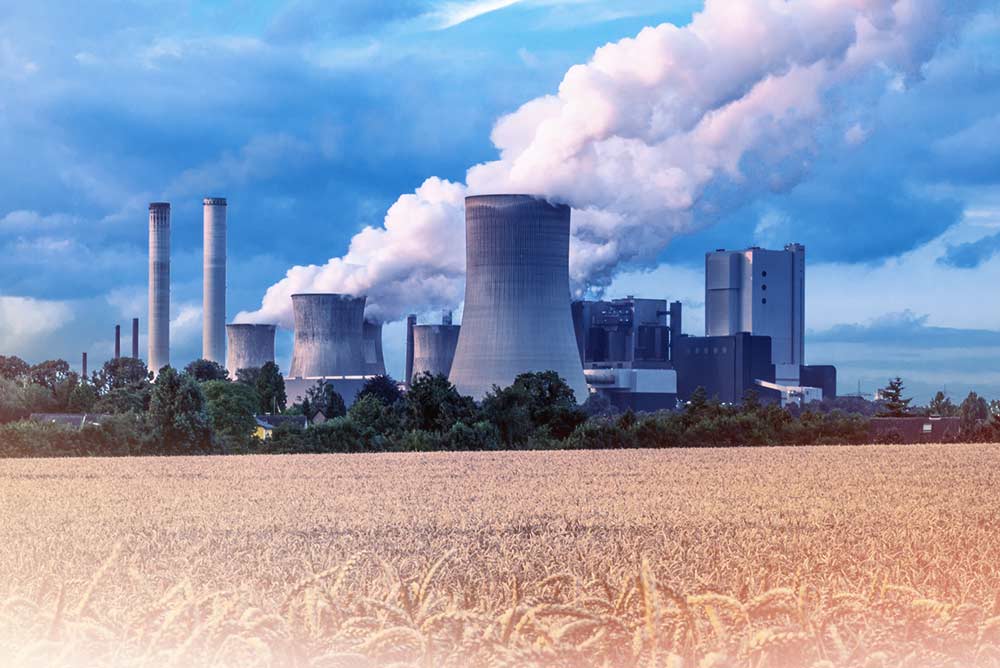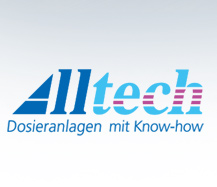Water treatment in the energy industry.
Sustainable Alltech dosing technology for power plants and biogas facilities.
Wastewater treatment is used in various areas of the energy industry. The goal is to purify the wastewater and minimize environmental pollution. Effective wastewater treatment is necessary to promote sustainable energy generation and minimize the environmental impacts of the energy industry.
Different areas of application for wastewater treatment in the energy industry.
Power plants
Power plants require large amounts of water for machine cooling and steam generation. The wastewater generated through cooling often contains contaminants such as heavy metals, organic compounds, and nutrients that can be harmful to the environment. Wastewater treatment is necessary in this case to purify the wastewater and minimize environmental pollution.
Oil and gas industry
The oil and gas industry utilizes significant amounts of water for exploration, extraction, processing, and transportation of oil and gas. The resulting wastewater can contain various contaminants, such as hydrocarbons, salts, heavy metals, and radioactive substances. Wastewater treatment is necessary in this case to purify the wastewater and safely reintroduce it back into the environment.

Mining industry
The mining industry generates large quantities of wastewater, which often contains high concentrations of heavy metals, acids, and other toxic substances. The objective of wastewater treatment is not only purification but also the reduction of environmental pollution, which plays a crucial role.
Biofuel production
During the production of biofuels such as ethanol and biodiesel, significant amounts of wastewater are generated, which contain organic compounds, nutrients, and other contaminants. Wastewater treatment serves the purpose of both purification and environmental protection.
Relevant steps in water treatment in the energy industry.
Removal of solids
The water is initially passed through screens, rakes, and other devices to remove larger solids such as leaves, branches, sand, and sludge.
Removal of dissolved substances
The water is then passed through various filters to remove dissolved substances such as salts, minerals, organic compounds, and bacteria. Methods such as activated carbon filtration, reverse osmosis, ion exchange, and ultrafiltration are employed for this purpose.
Chemical treatment
If the water is still not clean enough, it is treated with chemicals to remove unwanted contaminants. Methods such as precipitation, neutralization, oxidation, and chlorination are commonly employed for this purpose.
Disinfection
The purified water is then disinfected to ensure it is free from pathogens and other harmful organisms. Methods such as chlorination, ozonation, or UV disinfection are employed for this purpose.
Storage and reuse
The treated water is stored in tanks or reservoirs before being reintroduced into the energy generation process. The reuse of water in energy production can help reduce the demand for fresh water and decrease environmental impact.
Alltech products for water treatment in energy generation:
Dosage of defoamers:
- Storage and dosing stations for biocides
- FKM piston-diaphragm dosing pumps
Dosage of biocides:
- Storage and dosing stations for biocides
- FKM piston-diaphragm dosing pumps
Urea treatment and dosing:
- PREPADOS solvent preparation systems
- POLYMAT solvent preparation systems
- SOLVIMAT solvent preparation systems
- FKM piston-diaphragm dosing pumps
- Complete dosing systems
Alltech reference projects in energy-generating industries
Comprehensive project support
Alltech carries out water treatment projects in energy-generating industries from planning to manufacturing, installation, and commissioning. They also provide on-site support for TÜV acceptance and provide comprehensive training to wastewater treatment plant staff during the commissioning of the entire dosing technology.

